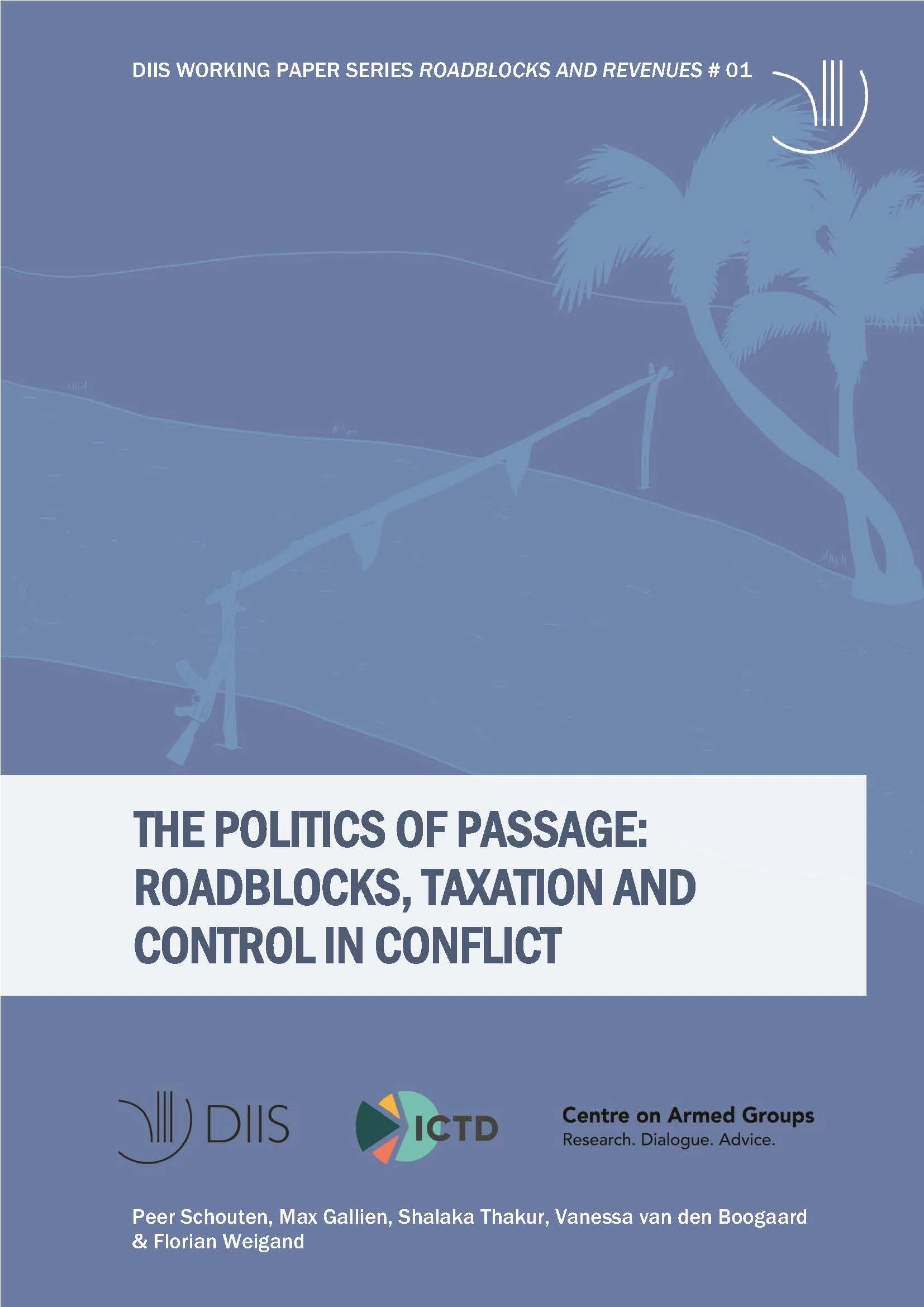Roadblocks and revenues: the politics of passage
New working paper series
From Afghanistan and Yemen and from Mali to Somalia, checkpoints are central to dynamics of armed conflict, funding insurgents, driving violence and shaping governance by various types of armed actors, state and non-state alike. Nonetheless, checkpoints and roadblocks are often overlooked in debates over what drives conflict and how we should understand order in areas of contested statehood.
The new working paper series on roadblocks and revenues sets out to address this gap, shedding lights on checkpoints in conflict contexts across the world and providing a new window into dynamics of authority and power. The series is based on a partnership between the Danish Institute for International Studies, the International Centre for Tax and Development and the Centre on Armed Groups and a series of workshops hosted in Copenhagen (2023) and Caux (2024), which brought together an international community of scholars.
Paper 01: Roadblocks and Revenues: The Politics of Passage, by Peer Schouten, Max Gallien, Shalaka Thakur, Vanessa van den Boogaard & Florian Weigand
Paper 02: The Border Business: A Political Economy Analysis of Checkpoint Taxation in Afghanistan, by Sarajuddin Isar
Paper 03: Choking Points: Opium Flows, Roadblocks and Illicit Finance in Burma’s Shan State, by John Buchanan
Paper 04: Border control paradox: The political economy of smuggling between Colombia and Venezuela, by Jorge Mantilla
Paper 05: Dead-end dictatorship: roadblocks, rural livelihoods and resilient resistance in post-coup Myanmar, by Gerard McCarthy & Kyle Nyana
Paper 06: Somalia’s isbaaro: Checkpoints and world-making beyond the state, by Abdirahman Edle, Jethro Norman & Peer Schouten
Paper 08: Beyond the ‘Rebel’ Territorial Trap: Checkpoints in Myanmar by Tony Neil & Saw Day Chit
Paper 09: ‘Escaping isn’t for everyone’: Kurdish smugglers’ navigational tactics at checkpoints in Iran by Peyman Zinati
Paper 10: Checkpoints, Transnational Trade, and Conflict by Peer Schouten

